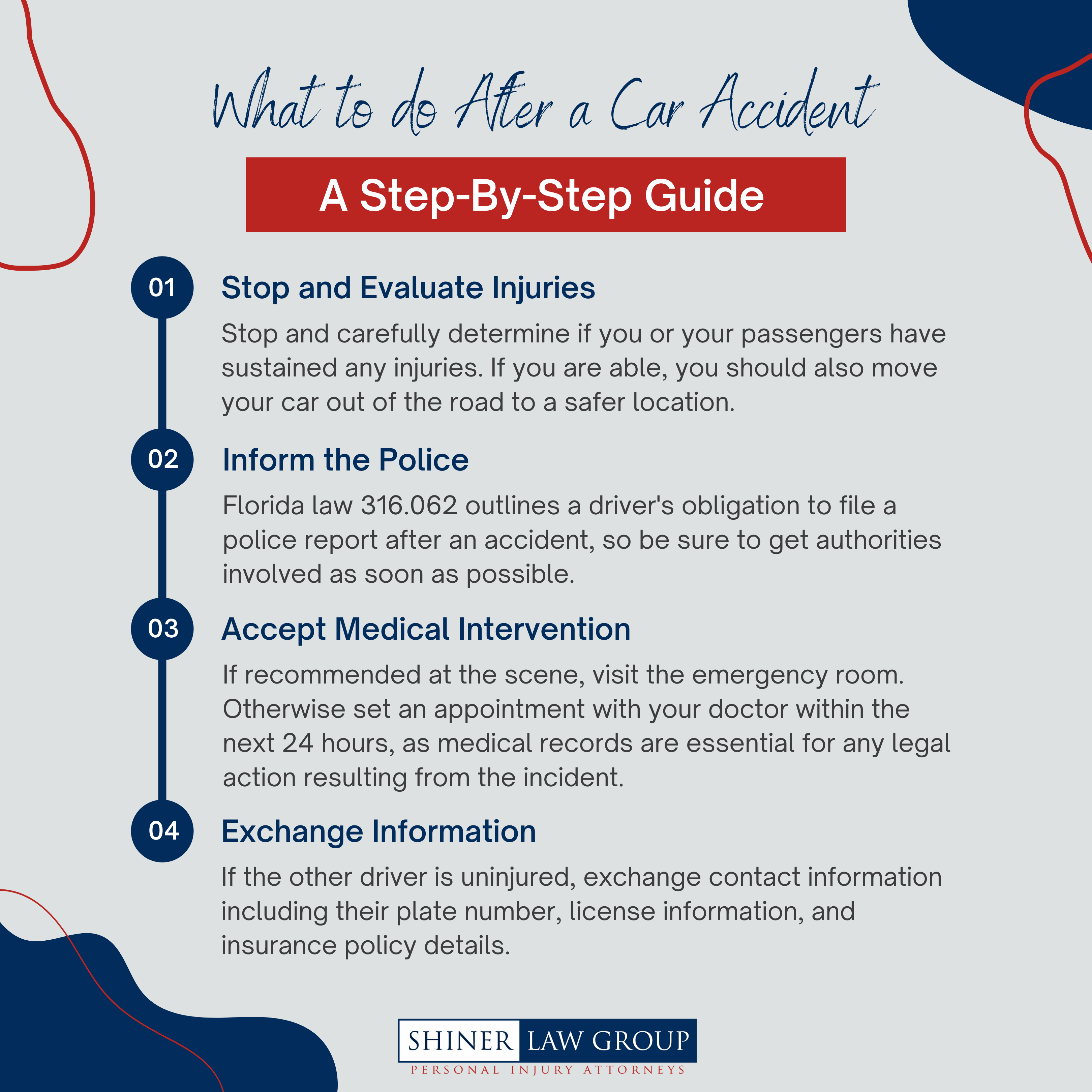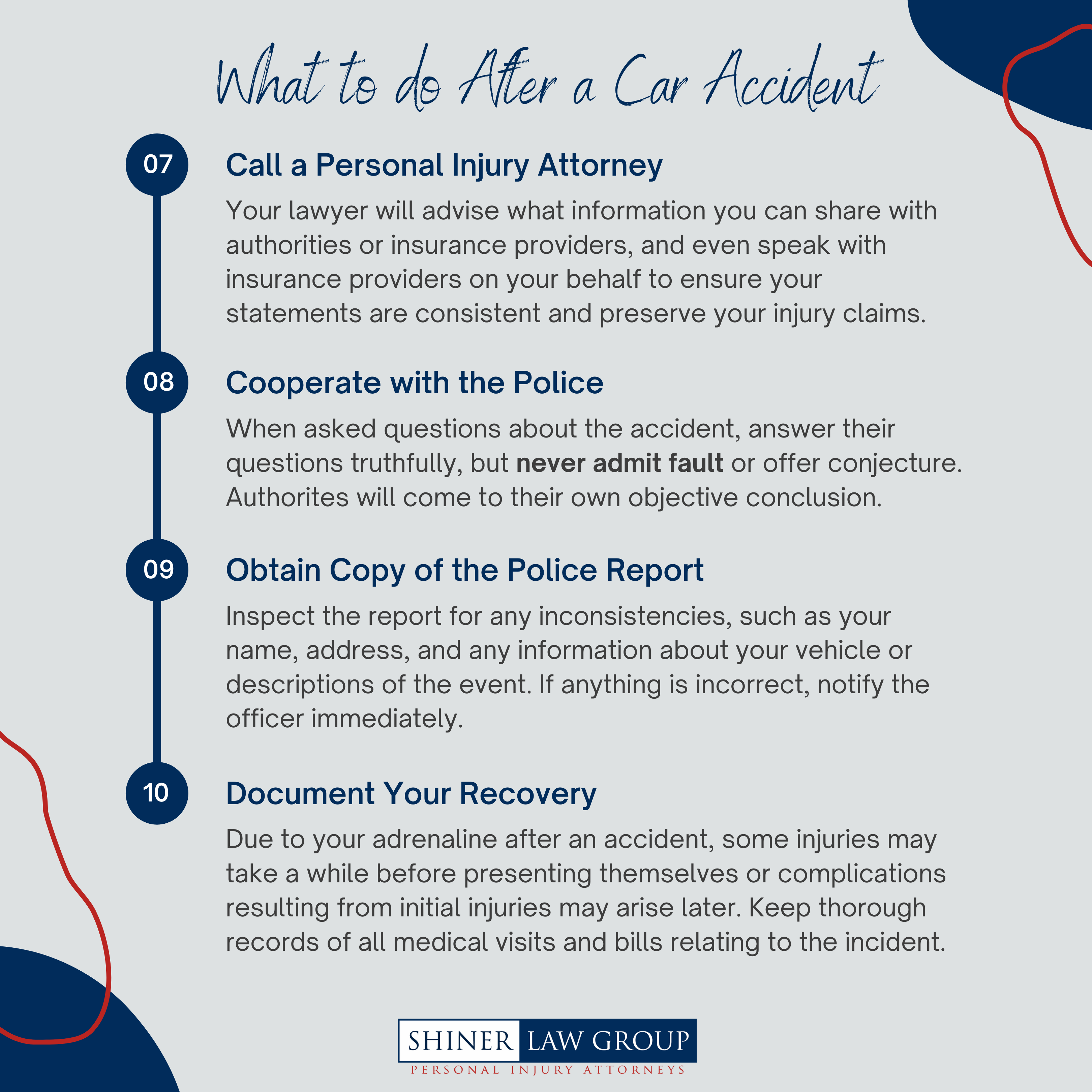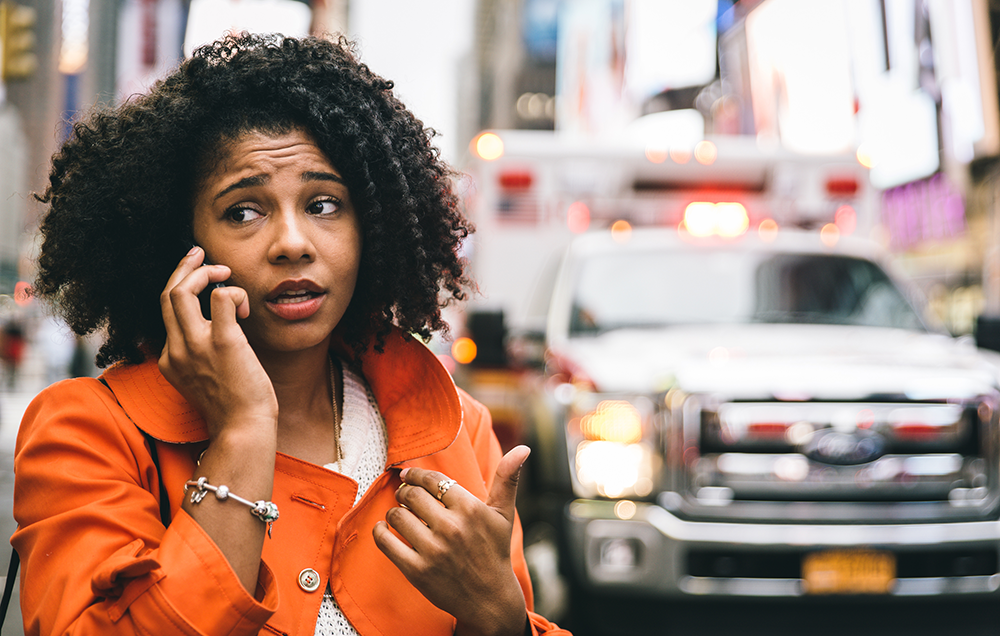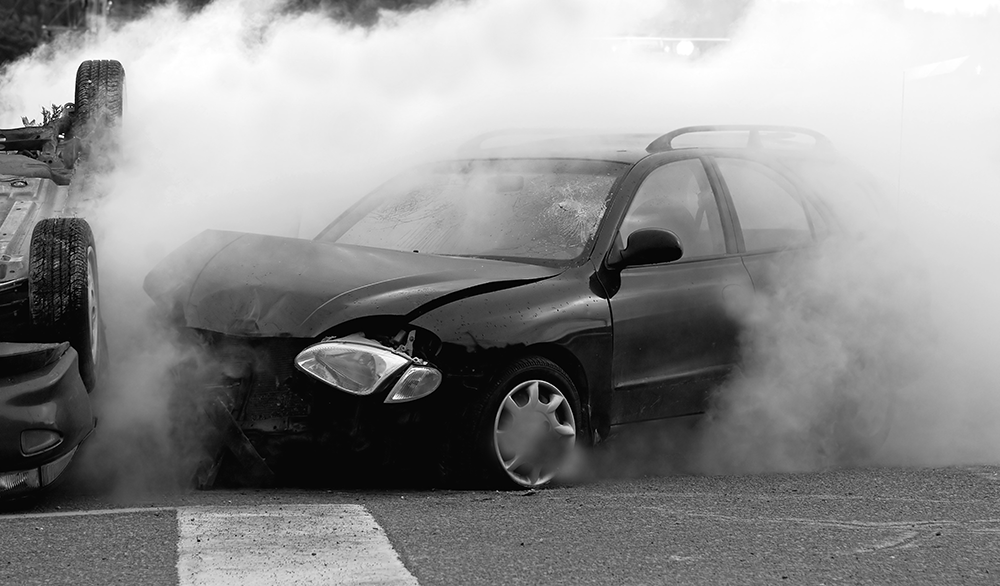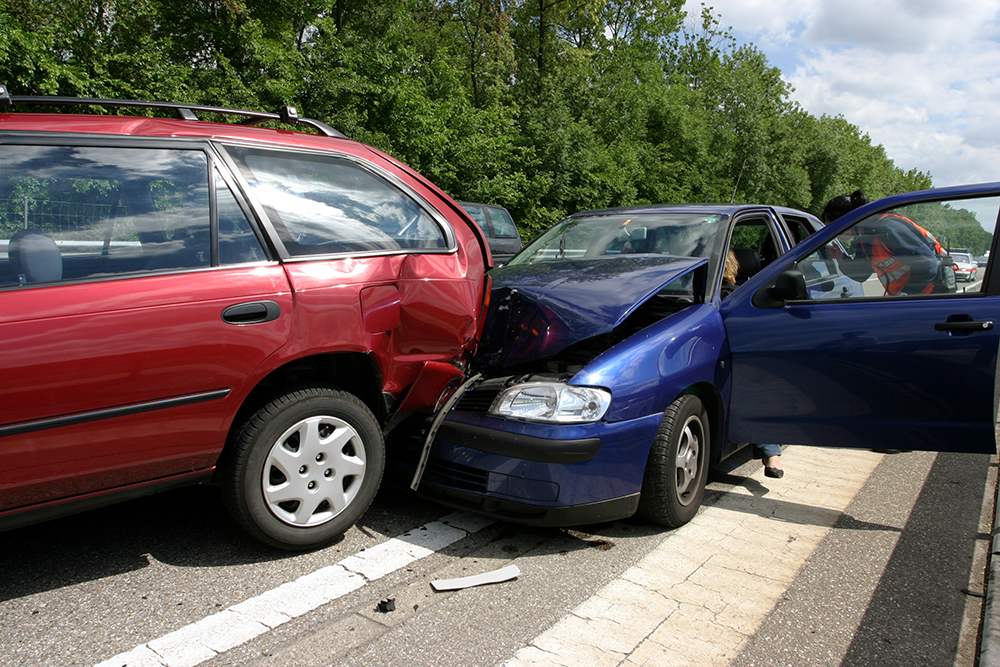Realizing what to do after a car crash can be an intimidating experience, particularly when managing the prompt effects. This comprehensive guide will provide valuable insights into the necessary steps to take following such incidents.
You’ll learn about the importance of calling emergency services in case of injuries and ensuring personal safety at the scene. We’ll also delve into documenting the accident scene, including taking photographs of vehicle damage and gathering essential information from all vehicles involved.
We’ll discuss how to navigate interactions with insurance companies post-accident, emphasizing avoiding discussions of fault at this stage and going through proper channels for your insurance claim. Additionally, we’ll explore understanding liability coverage after an incident, specifically ‘accident forgiveness’ benefits offered by insurers and who covers medical bills due to injuries sustained during incidents.
This guide also emphasizes contacting police officers promptly and providing accurate accounts of how the accident occurred. Initiating claim processes promptly after a collision is crucial as well; thus we will touch on lodging complaints against opposing motorist’s provider regardless.
Last but not least, you’ll discover why collecting relevant data for future reference is important along with maintaining regular tire maintenance checks to reduce chances of road traffic incidents in future. By adhering to these guidelines on what to do after a car accident, you are better equipped in managing these stressful situations effectively while protecting your legal rights.
Our accident and injury lawyers at Shiner Law Group, represent injury victims just like you in many practice areas within personal injury law. If you have been injured by a person or company, contact our office for a free 100% free consultation to discuss your case details.
Table Of Contents
- Immediate Steps After a Car Accident
- Documenting The Accident Scene
- Dealing With Insurance Companies Post-Accident
- Understanding Liability Coverage Following An Incident
- Contacting Police Officers And Providing Accurate Accounts Of The Crash
- Initiating Claim Process Promptly After A Collision
- Collecting Relevant Data For Future Reference
- Maintaining Regular Tire Maintenance Checks To Reduce Chances Of Road Traffic Incidents In Future
- FAQs in Relation to What to Do after a Car accident
- If You Need The Assistance of an Auto Accident Attorney
Immediate Steps After a Car Accident
The moments following a car accident can be disorienting and stressful. Staying composed and taking these prompt measures are essential to guarantee your security and secure your legitimate rights in the aftermath of a car crash.
Calling Emergency Services in Case of Injuries
If there are any injuries involved, the first step is to call 911 immediately. Even if you think you’re fine, some injuries may not be apparent right away. After an accident, medical evaluation should be sought out without delay.
Ensuring Personal Safety at the Scene
Your next priority should be ensuring your own safety. If possible, move away from the vehicle and off the road to avoid further harm from oncoming traffic or potential hazards like leaking fuel. Remember that pedestrian safety is crucial during this time.
Don’t Be a Hit-and-Run Hero
In addition to calling for help and ensuring personal safety, it’s also vital that you don’t leave the scene until law enforcement arrives – doing so could result in hit-and-run charges depending on local laws. Remain on the scene and act responsibly.
Document the Accident
While waiting for law enforcement to arrive, document the accident by taking pictures of the scene and exchanging information with the other driver(s) involved. This information should include names, phone numbers, insurance information, and license plate numbers.
Notify your Insurance Company
Immediately inform your insurance provider of the accident, as they can help you with any potential claims or legal proceedings that may arise. They will guide you through the claims process and help you get your car repaired or replaced.
Taking these immediate steps after a car accident will not only prioritize your health but also lay down groundwork for any potential legal proceedings or insurance claims that might arise later on. Stay safe out there on the road.
Takeaway: After a car accident, the first step is to call emergency services if there are any injuries. Then, ensure personal safety at the scene and don’t leave until law enforcement arrives. Documenting the accident by taking pictures of the scene and exchanging information with other drivers involved is important before notifying your insurance company as soon as possible to guide you through claims process for repairing or replacing your car.
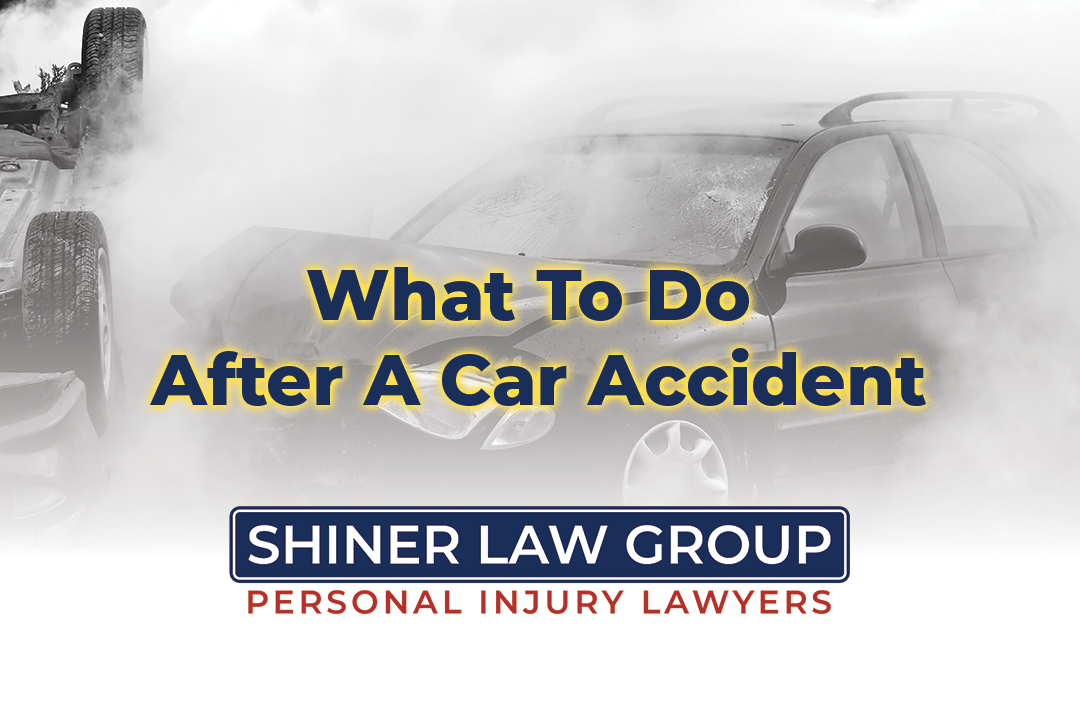
Documenting The Accident Scene
Once everyone’s safe after a car accident, it’s crucial to start documenting the accident scene. This process provides concrete evidence that can be used when filing insurance claims or in court if necessary.
Taking Snaps of Damage
The first step in documenting an accident involves taking clear and detailed photos. Ensure you capture images of all vehicles involved from various angles, highlighting any visible damages. Also, take pictures of the surrounding area to provide context about what might have contributed to the incident.
Gathering Essential Info
- Name and Contact Details: Collect names, addresses, phone numbers, and email addresses from all parties involved, including witnesses.
- Vehicular Data: Note down license plate numbers along with make and model details for each vehicle involved.
- Insurance Information: Gather insurance company name and policy number from other drivers implicated in the crash.
This information will play a significant role during your claim process with your insurer or if legal action becomes necessary. Remember not to interfere with law enforcement procedures while gathering this data; allow them space to do their job effectively too.
If you’re unsure how best to document an accident scene or need further guidance on dealing with post-accident situations like injuries or property damage claims, consider reaching out to professional personal injury lawyers such as Shiner Law Group.
Dealing With Insurance Companies Post-Accident
After a car accident, dealing with insurance companies can be a nightmare. Remember to only provide necessary details and avoid discussing fault at this stage.
Avoid Discussing Fault At This Stage
Following an accident, emotions run high, and it’s natural to want to discuss who was at fault. However, doing so could harm your claim later on. Instead, focus on providing factual information about what happened without assigning blame or accepting responsibility.
Importance Of Going Through Proper Channels
It may be tempting to accept cash payments or side deals instead of going through proper channels like insurance companies. However, these shortcuts can lead to complications down the line. Always ensure that all communications and transactions related to your claim go through official channels.
Contacting your own insurer as soon as possible after the incident is also crucial. They will guide you through their specific claims process and help coordinate with other parties involved in the accident if needed.
Consult a Car Accident Lawyer
Every case is distinctive, so a strategy that works for one individual may not be successful for another. Therefore, consider consulting a car accident lawyer who specializes in car accidents before making any decisions regarding your case. Shiner Law Group is a credible source for legal advice and representation.
Understanding Liability Coverage Following An Incident
Getting into a car accident is never fun, but understanding liability coverage can make the aftermath a little less stressful. If the crash wasn’t due to your fault, then the other driver’s insurance should cover any harm caused. Easy peasy.
‘Accident Forgiveness’ Benefits Offered by Insurers
Some insurance companies offer ‘accident forgiveness’ to keep your premium from skyrocketing after your first at-fault accident. Just make sure to read the fine print before signing up for anything.
Determining Who Covers Medical Expenses Incurred Due to Injuries Sustained During Incidents
If the other driver caused the accident and you were injured, their insurance should cover your medical expenses. But if there’s a dispute or delay, having personal injury protection (PIP) or MedPay on your own insurance plan can be a lifesaver. These types of coverage will pay for your healthcare expenses regardless of who was at fault.
If you caused the accident, it gets a little trickier. Depending on the specifics of your policy, either your insurance or the other driver’s insurance could end up paying for medical treatment. So, make sure you understand your policy before hitting the road.
Contacting Police Officers And Providing Accurate Accounts Of The Crash
In the event of a vehicular collision, contact law enforcement immediately to receive assistance with your claim and have the incident documented. They’re like superheroes who can document the incident and help you with your claim process. But make sure you give them the real deal about what happened.
Role of Police Reports in Claim Processes
Police reports are official records of the accident and can significantly impact how insurance companies handle claims. They contain details about property damage, injuries, potential law violations, and sometimes even officer opinions on fault – all factors that may affect your compensation.
Accuracy is key to ensuring a fair settlement. Misinformation or omissions could skew perceptions of who was at fault, so it’s crucial to provide precise accounts.
If there are discrepancies between parties involved, witnesses present at the scene might help clarify issues. So, it’s wise to gather their contact info whenever possible post-incident. They could serve as independent third-party validators later on if necessary.
Being transparent with officers builds trust, increasing the chances of securing favorable outcomes when insurers evaluate the circumstances. Remember: honesty is the best policy under such scenarios, no matter how stressful the situation seems initially.
Initiating Claim Process Promptly After A Collision
Act quickly to contact your insurer after a car accident, even if attending to emergency responders and yourself is still the priority. Even if you’re still dealing with emergency responders and ensuring your physical well-being, don’t delay in initiating the claim process.
This prompt action is essential even without official documentation available at that moment. You might not have a formal report filed by local authorities yet, but starting early on the claims process can help expedite matters later.
Lodging Complaints Against Opposing Motorist’s Provider Regardless
It’s also important to lodge complaints against the opposing motorist’s insurance provider regardless of who was at fault. This step ensures that all parties involved are aware of what happened and can start their investigations into liability promptly.
The importance of filing an insurance claim quickly cannot be overstated. It helps establish a timeline for events surrounding the accident and provides evidence supporting your version of events should disputes arise about who was responsible for causing the collision.
Apart from providing necessary details about damages incurred during accidents, lodging complaints timely could potentially increase chances receiving fair compensation payouts eventually due primarily towards demonstrating proactive approach throughout entire ordeal thereby reinforcing credibility overall . Remember: time essence here so act swiftly.
Collecting Relevant Data For Future Reference
Gather all pertinent information concerning the incident to ensure you have relevant data for future reference. Note down license plate numbers and specifics related to the occurrence. These details can play an essential role in your case later on.
Importance of Gathering Contact Info from Witnesses
Don’t overlook collecting contact information from witnesses at the scene. Their accounts can help clarify discrepancies arising amidst differing narratives presented by disputing factions moving forward.
If you’re unsure about what kind of data to collect after a collision, consider reaching out to a car accident lawyer. A car accident lawyer can provide direction in navigating this situation and ensure a smooth process.
Keep Track of Medical Records and Expenses
Beyond gathering evidence at the scene, keeping track of medical records and expenses incurred due to injuries sustained during incidents is also important for future reference. This documentation will support your claim when seeking compensation for damages suffered because of someone else’s negligence or recklessness on roadways.
Maintaining thorough records following an accident helps ensure that all relevant facts are preserved accurately. This might prove beneficial while negotiating settlements with insurance companies or even if legal proceedings become necessary eventually. So always remember: The more comprehensive your data collection post-accident, the better chances of achieving favorable outcomes long-term.
Maintaining Regular Tire Maintenance Checks To Reduce Chances Of Road Traffic Incidents In Future
As a proactive measure towards reducing potential accidents, maintaining regular tire maintenance checks is essential. Regular checks of tire condition can help decrease the possibility of road traffic mishaps in the future.
Proactive Measures Towards Reducing Potential Accidents
Tire pressure should be monitored on a monthly basis at minimum. Underinflated or over-filled tires can result in substandard handling, amplified wear and tear, tire blowouts, and even collisions. A National Highway Traffic Safety Administration study found that properly inflated tires can lower crash risk by around 3 percent.
Besides checking tire pressure regularly, other aspects of tire maintenance include inspecting for damage such as cuts or punctures which could cause sudden deflation while driving. Additionally, ensuring that your vehicle’s alignment and balance are correct will help prevent uneven wear on your tires.
Tread Depth Matters
The tread depth of your tires also plays an important role in their performance – especially during wet conditions where hydroplaning might occur if treads are worn out excessively. Therefore, it’s crucial to replace them once they reach 2/32″ according to NHTSA guidelines. You may use simple tools like the penny test to ascertain whether current tread depths fall within safe parameters or not.
Be A Responsible Motorist
In essence, adopting a proactive stance towards the general upkeep of personal transportation devices overall, thereby minimizing the likelihood of facing similar predicaments again eventually, is a vital part of being a responsible motorist. Remember, safety begins before you even start the engine – with proper care and attention given toward all components, including those rubber rounds keeping your car grounded firmly onto the asphalt beneath.
Takeaway: Regular tire maintenance checks are essential to reduce the chances of encountering road traffic incidents in the future. Proactive measures include monitoring tire pressure, inspecting for damage and ensuring correct alignment and balance. Tread depth is also important as worn out treads can lead to hydroplaning during wet conditions. Being a responsible motorist means adopting a proactive stance towards personal transportation upkeep overall.
FAQs in Relation to What to Do after a Car accident
Dealing With a Car Accident? Follow These 7 Steps:
- Check for injuries and call 911 if necessary.
- Move to a safe location and turn on hazard lights.
- Exchange information with the other driver.
- Take photos of the damage and the scene.
- File a police report.
- Notify your insurance company.
- Seek medical attention if needed.
Considerations After An Accident
- Stay calm and don’t admit fault.
- Exchange information with the other driver.
- Take photos of the damage and the scene.
- File a police report.
- Notify your insurance company.
- Seek medical attention if needed.
- Contact a lawyer if necessary.
What not to say after an accident:
- “I’m sorry.”
- “It was my fault.”
- “I didn’t see you.”
- “I’m not injured.”
- “Let’s just handle this without involving the police or insurance.”
- “I’ll take care of everything.”
- “I don’t have insurance.”
If You Need The Assistance of an Auto Accident Attorney

Car Accident Attorney, David Shiner
Suing for compensation due to car crashes is a complex legal matter. Aside from making sure that your statements line up, you will also need to back your claims with photo evidence, documents, and eyewitness testimony.
To help you navigate these matters, you should seek the services of a skilled car accident lawyer as soon as possible. They will be able to give you qualified legal advice from the onset of a car collision and guide you through the process of suing for damages.
Shiner Law Group is a team of dedicated lawyers in Florida that provide a hands-on and personalized approach for any type of personal injury claim. Contact us today at (800) 364-4444 or fill out a free case evaluation to see how we can help you with your case.
Are you looking for a car accident lawyer near you? The Shiner Law Group is a group of dedicated lawyers in Florida that provide a hands-on and personalized approach for any type of personal injury claim. Contact us today and let us know how we can help you!
